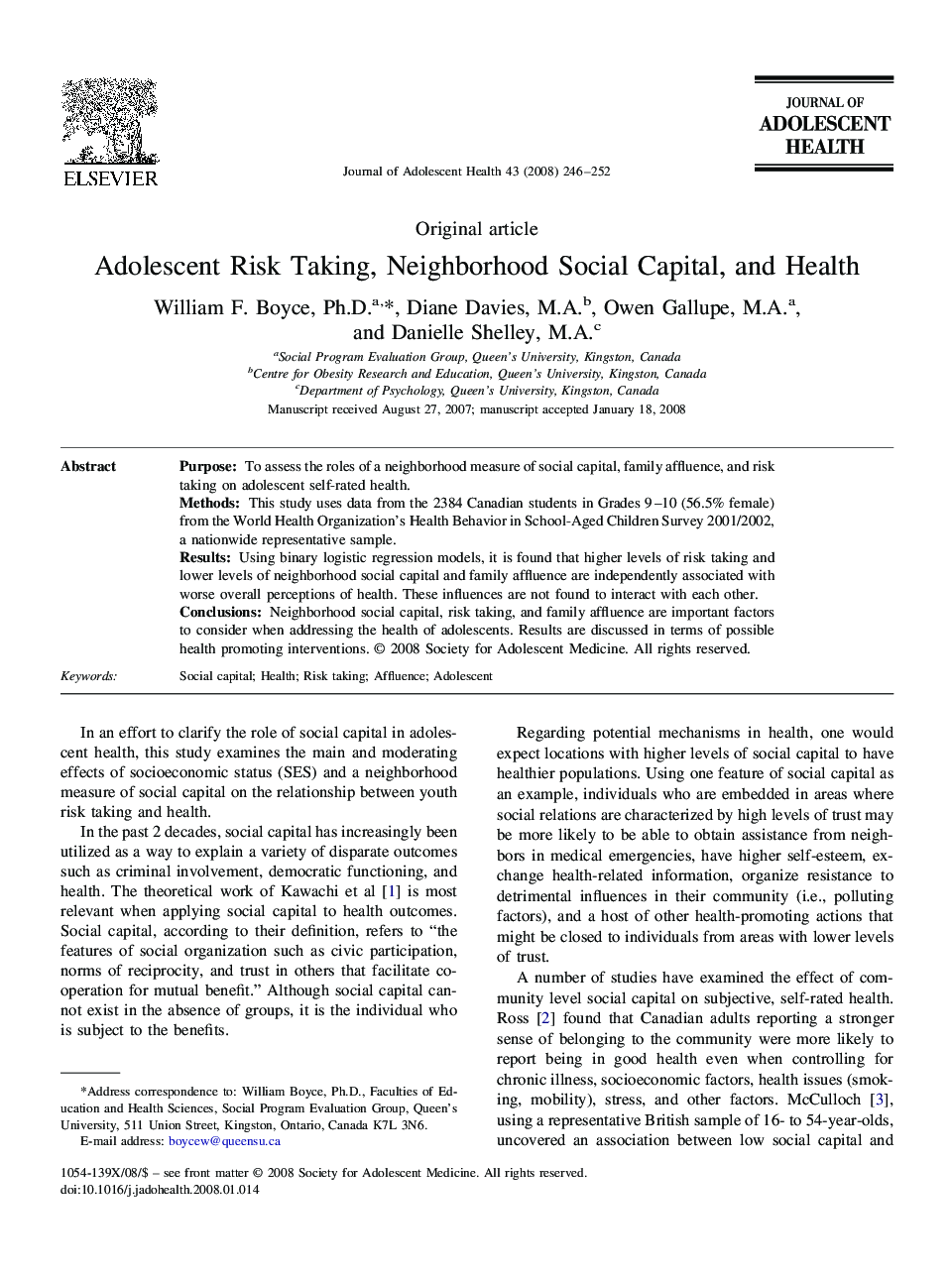| Article ID | Journal | Published Year | Pages | File Type |
|---|---|---|---|---|
| 1081174 | Journal of Adolescent Health | 2008 | 7 Pages |
PurposeTo assess the roles of a neighborhood measure of social capital, family affluence, and risk taking on adolescent self-rated health.MethodsThis study uses data from the 2384 Canadian students in Grades 9–10 (56.5% female) from the World Health Organization's Health Behavior in School-Aged Children Survey 2001/2002, a nationwide representative sample.ResultsUsing binary logistic regression models, it is found that higher levels of risk taking and lower levels of neighborhood social capital and family affluence are independently associated with worse overall perceptions of health. These influences are not found to interact with each other.ConclusionsNeighborhood social capital, risk taking, and family affluence are important factors to consider when addressing the health of adolescents. Results are discussed in terms of possible health promoting interventions.
